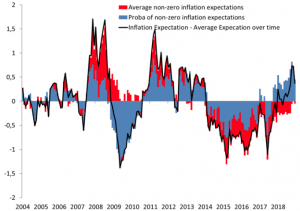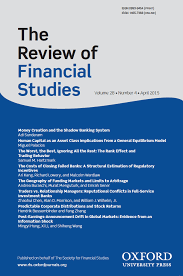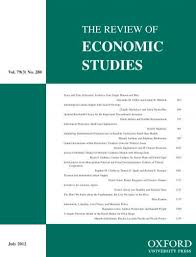Blogs
 Should we fear the return of inflation?
Should we fear the return of inflation?
With the economic recovery, prices started to rise again in the United States, fueling fears of inflationary spirals. An important component in this potential return is household consumption. This should not contribute to the return of such a spiral, believes Eric Mengus, associate professor at HEC. (article in french) Check it out!
 Can Housing Prices Fuel Optimism On The Way Out?
Can Housing Prices Fuel Optimism On The Way Out?
With the advent of the crisis, prices started climbing quickly, reaching a double-digit growth at the end of 2020. Despite it might be too early to comprehend this puzzling dynamics fully, most commentators indicate that as an early sign of recovery, spreading optimism. But, to which extent this may be hint of the way out? In our new research, we stress the importance of price movements in shaping people’s growth expectations and, as a consequence, the business cycle. Based on his recent publication coauthored with Boston College Professor Ryan Chahrour, HEC Paris Professor Gaballo explains how housing prices generates waves of optimism and pessimism causing sizeable fluctuations in the business cycle. A spike in housing prices can then effectively fuel the optimism needed to trigger a quick, persistent recovery of the US economy. Check it out!
 How households’ inflation expectations matter
How households’ inflation expectations matter
By Philippe Andrade, Erwan Gautier, Eric Mengus. According to macroeconomic theory, managing inflation expectations is crucial for stabilising the economy. This is particularly true in times of crisis, when the nominal interest rate hits its lower bound. This column provides new evidence from France on how the inflation expectation channel operates in terms of consumer spending. The results suggest that households make consumption decisions based on the broad inflation regime that they expect, rather than with regards to the precise inflation forecast. Check it out.
 Central bank independence at risk: Low rates, new risks.
Central bank independence at risk: Low rates, new risks.
By Jean Barthélemy, Eric Mengus, Guillaume Plantin.Real interest rates are at historically low levels in advanced economies. This column looks at the implications for central bank independence. It argues that low rates, even though they relax the budget constraint of the public sector, will not necessarily strengthen central bank independence. Quite counterintuitively, in the current context of low inflation, preserving central bank independence may require that the public deficit be financed with helicopter money, rather than government debt, to prevent the government from entering into uncontrollable spending. Check it out.
 How Can ECB Measures Help Governments and Businesses to Face the COVID-19 Crisis and to Recover From It?
How Can ECB Measures Help Governments and Businesses to Face the COVID-19 Crisis and to Recover From It?
In this interview, Gaetano Gaballo, Associate Professor of Economics at HEC Paris and formerly research economist at the European Central Bank (ECB), reminds the role of the ECB, explains its first move in response to the COVID-19 crisis and the markets reaction. Gaballo also shares his analysis on what are the likely challenges that the ECB, and the Eurozone in general, will face in a near future. Check it out!
Research
 Monetary Policy Risk: Rules versus Discretion
Monetary Policy Risk: Rules versus Discretion
By , forthcoming at The Review of Financial Studies.
Long-run asset pricing restrictions in a macro term structure model identify discretionary monetary policy separately from a policy rule. We find that policy discretion is an important contributor to aggregate risk. In addition, discretionary easing coincides with good news about the macroeconomy in the form of lower inflation, higher output growth, and lower risk premiums on short-term nominal bonds. However, it also coincides with bad news about long-term financial conditions in the form of higher risk premiums on long-term nominal bonds. Shocks to the rule correlate with changes in the yield curve’s level. Shocks to discretion correlate with changes in its slope. Check it out!
 Learning from House Prices: Amplification and Business Fluctuations
Learning from House Prices: Amplification and Business Fluctuations
By Ryan Chahrour and Gaetano Gaballo, forthcoming at The Review of Economic Studies.
People easily observe prices, but not the volume of market transactions shaping them. Thus prices are not only what people need to pay to buy goods, but also signals about underlying changes in economic activity. Important prices for people's life, like house prices, may therefore have a pivotal role in affecting people's expectation on future growth, adding momentum to business cycles. In this paper we formalize this idea and show that even tiny supply shocks may propagate in large demand-driven business fluctuations. Moreover, we demonstrate that these effects do not rely on suboptimal conduct of monetary policy. Check it out!
 Working Paper: Aggregate Risk or Aggregate Uncertainty: Evidence from UK Households
Working Paper: Aggregate Risk or Aggregate Uncertainty: Evidence from UK Households
In the paper “Aggregate Risk or Aggregate Uncertainty: Evidence from UK Households” Luigi Paciello and Claudio Michelacci find that there is a strong negative correlation between individual household preferences and expectations: households who report to prefer lower inflation, actually expect higher inflation than the average. And this behavior is in part explained by wealth. Richer households prefer tighter monetary policy and higher real interest rates but behave robustly and expect relatively higher inflation at times of higher uncertainty. By overweighting the scenarios that are more unfavorable, households tend reduce individual demand. And lower demand typically translates into lower aggregate output in modern economies. Check it out!
 Working Paper: The Extensive Margin of Aggregate Consumption Demand.
Working Paper: The Extensive Margin of Aggregate Consumption Demand.
Combining micro data with macro models, Claudio Michelacci, Luigi Paciello and Andrea Pozzi investigate the consumer’s behavior changes over product cycles. They look at transactions data and many other data on consumption over the business cycle, to better understand whether consumers buy and try new products during recessions in the same way they do during booms. Changes in the basket are driven by fluctuations in the rate at which households add products; removals fluctuate little. Household adoption amplifies the effects of fiscal transfers on consumption by roughly 40 percent. Cyclical household adoption of products also implies that inflation measures based on a representative household consuming all varieties available in the market underestimate true household-level inflation by as much as 1 percent per year over the Great Recession. Check it out!
